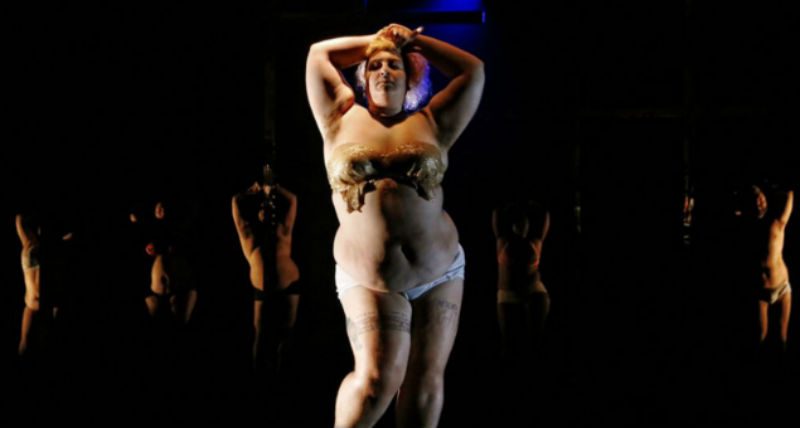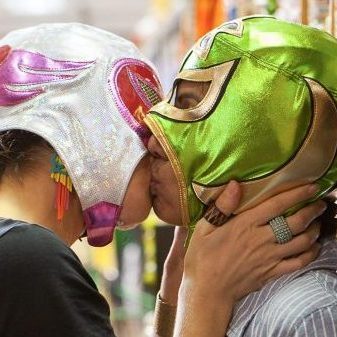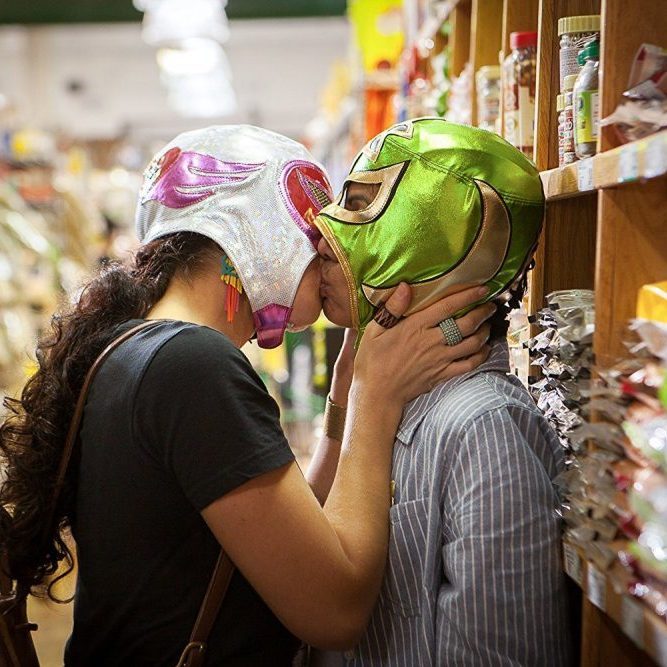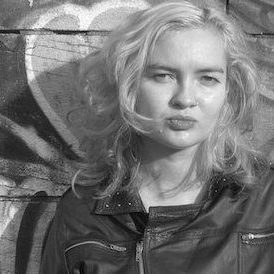
When queer fat activist and artist Kelli Jean Drinkwater joined forces with acclaimed choreographer Kate Champion of Force Majeure and bought a troupe of fuller-figure dancers to the mainstream stage, they deliberately challenged status quo.
The production, Nothing to Lose, was the unexpected hit of the 2015 Sydney Festival. It created a powerful new language of dance and shattered preconceptions about femininity and masculinity, beauty, and desirability. Drinkwater’s long-awaited documentary of the same name chronicles the creation of the hit production, from its open auditions and workshops to its triumphant performance.
Kelli Jean spoke to us on the eve of the film’s Sydney premiere at the Queer Screen Film Festival.
There’s a powerful moment in the documentary that looks at how society quite openly tries to dictate what large people can and can’t do with their bodies. How has this thinking come about, do you believe?
I believe it comes down to capitalism and fear. Western society is so invested in an idea of an often unrealistic and usually unobtainable physical perfection that is thin, white and heterosexual. There’s a belief that body size equals how healthy we are and that health is a moral compass that is non-negotiable. And society has eaten it up. There are multi-billion dollar industries that thrive on this never-ending pursuit.
Do you think people who identify as queer (or elsewhere in the LGBTQI+ spectrum) face the same body image issues as those who are heteronormative?
As a queer femme, I have thought about this a lot. For me, I found refuge in the queer community. When I was younger, queers were the ones who embraced me, validated me and helped me to unpack the dominant narrative of “acceptability” that’s so pervasive in straight culture. It gave me the freedom to explore those things. But having said that, being queer has definitely not been a “get out of body shame-free” card. We still live in capitalist patriarchy and the struggle is real.
Together with Kate Champion you successfully challenged the status quo with the Nothing to Lose performances. Do you think the show has contributed to lasting change?
I really hope that the show and now this film will keep the conversation around body difference and representation flowing and that those conversations and concepts are put into practice in a tangible way. That is the motivation for all of my creative and political work. I know that the cast has continued to make brilliant, challenging work in their own right and that being involved in Nothing to Lose contributed to that. For me, as long as people are challenging what we are being presented within creative work – who gets cast, whose stories are deemed valuable or interesting and who’s given the opportunities to create work – then that can only lead to good things.
How did being involved in the Nothing to Lose performances affect you?
Being involved in the show was a life-changing experience. I kept pinching myself the entire time, knowing that we were making something important, something radical and something that had the potential to have a huge impact on how people see themselves. It was a gift.
What’s your favourite moment in the film?
Oh, there’s quite a few! I think the sexy scene with Adonis and the coconuts will always be one of my faves but I don’t want to give too much away! Of course, the finale still gives me goosebumps even though I would’ve seen it a thousand times by now.
Why should people come to see Nothing to Lose?
Because it’s awesome! Nothing to Lose is a vital story about queer body politics and being proud of ourselves. Because the cast of Nothing to Lose is hilarious radical queer fat babes who all have varied stories and relationships to their bodies and it’s important for audiences to see different types of bodies on screen. Because no matter what size you are, most people can relate to body empowerment and reclamation.
What do you hope is the take-away from the film?
I would love people to come away with a sense of relief. Relief that they are seeing a nuanced representation of fat people on screen who all have vastly different experiences. That self-love is a journey that constantly changes. I’d also love for people to be more gentle towards their own and other people’s bodies.
How was the film received at the international premiere in San Francisco? What sort of feedback did you get?
It was so interesting to have the World Premiere at Frameline Film Festival in San Francisco rather than in Australia but it was all about festival timing. I loved showing it to an audience that hadn’t seen the live show and didn’t know any of the people in the film. I was so nervous! But the audience laughed in all the right spots and gave rapturous applause and were so excited afterwards. A lot were grateful to finally see this kind of story on the big screen!



